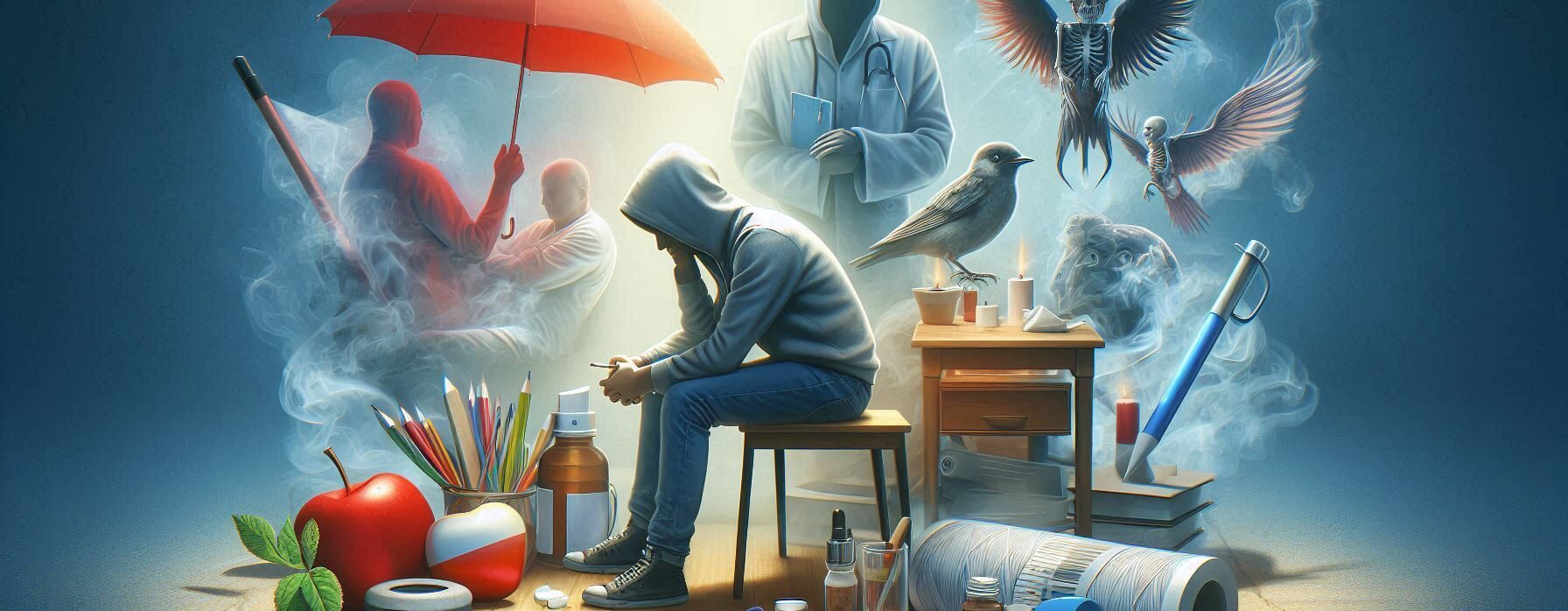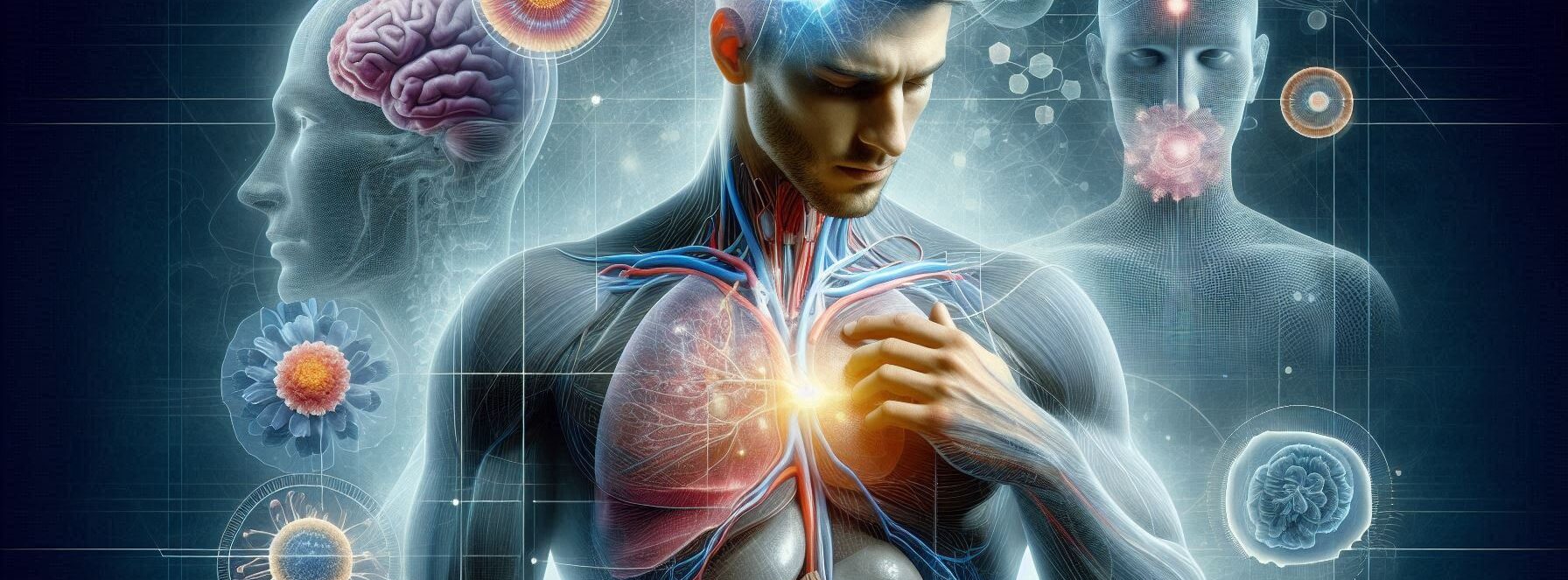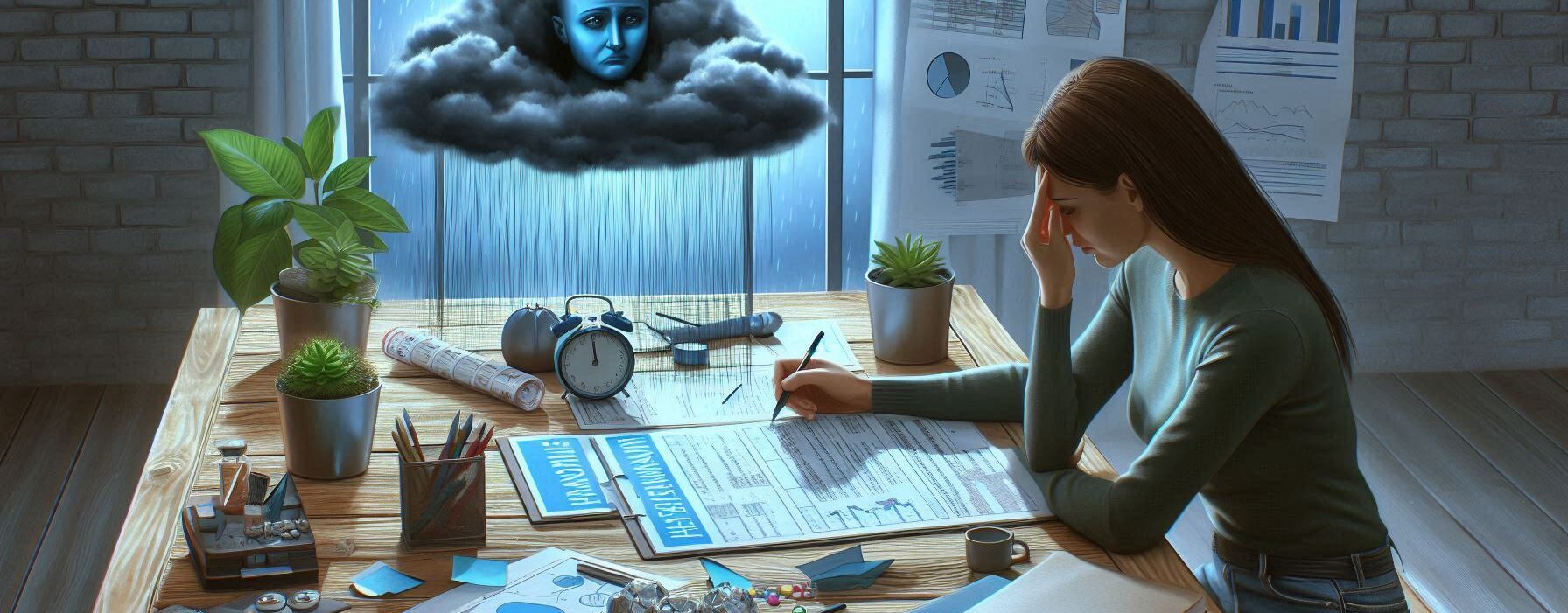Let’s be honest: navigating the world of mental health can feel like trying to cross a busy highway while blindfolded. You’ve got cars zooming past, people yelling “Get out of the way!” and somewhere in the chaos, there’s a giant inflatable duck.
Yes, I’m talking about stigma—those pesky misconceptions that make dealing with depression even more challenging than it already is. So grab your metaphorical helmet, and let’s tackle this issue with humor and a sprinkle of understanding!
Top Takeaways and Key Concepts
- Challenge the “snap out of it” myth by explaining depression needs real treatment and support.
- Remember that appearance doesn’t equal well-being—depression can hide behind a functional exterior.
- Encourage open discussion for both men and women to break gender-based mental health stereotypes.
- Avoid defining yourself or others by mental health labels; focus on growth and resilience instead.
- Educate yourself and share personal stories to reduce stigma and foster understanding within your community.
Summary of This Article
This article humorously tackles the stigma surrounding depression and how misconceptions make recovery harder. It debunks harmful ideas like “just snap out of it” and “you don’t look depressed,” reminding readers that depression often hides behind outward appearances. The author also highlights gender-based stereotypes that discourage open emotional expression and warns against defining people solely by their diagnoses. Ultimately, the piece encourages education, empathy, and storytelling as key tools for breaking stigma, fostering understanding, and building a more supportive culture around mental health.
The “Just Snap Out of It” Brigade
Please Note: This post may contain affiliate links. If you click one of them, we may receive a commission at no extra cost to you. As an Amazon Associate, I earn from qualifying purchases.

First off, let’s address the classic response to depression: “Why don’t you just snap out of it?” This statement usually comes from well-meaning friends or family members who clearly have never had their brain decide to take an extended vacation without telling them.
Honestly, if snapping fingers could cure depression, I’d be on stage at a magic show right now.
By the way, when someone tells you to snap out of it, you might want to respond with something equally absurd like, “Sure! And while we’re at it, why don’t I try flying by flapping my arms?”
It really highlights how ridiculous that suggestion is. Depression isn’t simply a mood; it’s like being stuck in quicksand—no amount of positive thinking will help unless you get some real support.
Interestingly enough, this stigma often leads people to suffer in silence because they fear judgment. They think admitting they’re feeling down will result in awkward silences or worse—everyone suddenly pretending they need to go check their emails.
The “You Don’t Look Depressed” Phenomenon
Next up is what I like to call the “You don’t look depressed” phenomenon. This one usually happens when you’re having an okay day (or maybe even wearing pants that fit) and someone feels compelled to comment on your state of mind as if they are some kind of emotional detective.
Let me tell you something: just because I managed to put on matching socks doesn’t mean my insides aren’t doing somersaults worthy of an Olympic gymnast. Sometimes people equate looking happy or functional with actually feeling that way.
It’s sort of like saying a duck gliding smoothly across a pond has no idea that underneath its calm exterior are frantic little feet paddling away for dear life.
So here’s a tip: next time someone gives you that line about not looking depressed, feel free to reply with something creative! Perhaps mention how swans are beautiful but also known for being aggressive—because we all know appearances can be deceiving!
Men vs. Women: The Stigma Showdown
Ah yes, gender stereotypes! When discussing depression stigmas, we can’t overlook how society views men and women differently regarding mental health issues.
For example, men are often told to toughen up or not show emotion—like somehow crying makes them less manly or incapable of opening jars (which is definitely untrue).
On the other hand, women may face different stigmas where expressing sadness is seen as acceptable but also tied into societal expectations around being nurturing and caring—all while juggling flaming swords (metaphorically speaking). As if managing emotions wasn’t enough pressure already!
To be fair though—and I do love fairness—it helps if both genders can share their experiences openly without worrying about fitting into these outdated molds. After all, wouldn’t life be easier if everyone could just wear pajamas all day long? Just kidding…sorta.
Fear of Labeling: The Mental Health Dictionary Dilemma
Now let’s talk about labels—the ones we use in mental health discussions that sometimes carry more weight than an elephant riding a unicycle (and trust me; that’s heavy!).
Many individuals worry that receiving a diagnosis means they’ll forever be defined by it instead of being seen as complex human beings capable of growth and change.
I remember once when someone asked me about my experience with depression; I hesitated before answering because I didn’t want them picturing me as some sad character from a movie who sits alone eating ice cream straight from the tub every night (although let’s be real—that does sound tempting).
But seriously! A label shouldn’t overshadow everything else we bring into relationships or conversations.
Speaking of which—if only there were an official dictionary filled solely with positive terms for mental health journeys! Imagine flipping through pages full of words like “resilient,” “brave,” and “pizza enthusiast.” Now THAT would be inspiring!
Breaking Down Barriers: How We Can Help Each Other
Finally, let’s focus on breaking those barriers surrounding depression stigma together! One small step we can take is educating ourselves about mental health issues so we can provide informed support rather than outdated advice based on myths or misunderstandings.
For instance, attending workshops focused on empathy-building skills would equip us better in supporting friends struggling silently through tough times—not just offering platitudes but genuinely listening without judgment (even when tempted by cat videos).
Honestly though? Sharing our stories openly helps too! When individuals speak candidly about their experiences with depression—even if wrapped up in humor—it encourages others facing similar battles not only seek help but realize they aren’t alone after all!
Suggested Resources:
Mental Health America
https://www.mhanational.org/
National Alliance on Mental Illness
https://www.nami.org/
American Psychological Association
https://www.apa.org/
Frequently Asked Questions
What is the most common stigma surrounding depression?
The idea that people should simply “snap out of it” is one of the most common and harmful stigmas, ignoring that depression is a medical condition requiring care and support.
Can someone look fine but still be depressed?
Yes. Many people with depression appear functional or cheerful on the outside while still struggling internally, making outward appearance an unreliable indicator of mental health.
How do gender stereotypes affect depression stigma?
Men often face pressure to hide emotions, while women may be judged for expressing them, creating barriers that prevent both from seeking support or discussing their struggles openly.
Why is labeling harmful in mental health?
Labels can overshadow a person’s individuality and reinforce negative stereotypes, making people feel defined by their diagnosis instead of their strengths and growth.
How can stigma discourage people from seeking help?
Fear of judgment or misunderstanding may cause individuals to stay silent, avoid treatment, or minimize their symptoms, delaying support that could improve their well-being.
What role does education play in reducing stigma?
Learning about depression helps correct misconceptions, encourages empathy, and equips people to offer meaningful support instead of relying on outdated or harmful beliefs.
Can sharing personal stories help fight stigma?
Yes. Openly discussing lived experiences normalizes conversations about depression, helping others feel less alone and promoting a culture of understanding and acceptance.

Kevin Collier is a passionate mental health advocate and writer for SadFAQ.com, where he explores the complexities of depression and mental well-being. With a deep understanding of mental health challenges, Kevin provides compassionate insights and practical advice to help individuals navigate their journeys toward healing. His articles aim to destigmatize mental health issues, offering support and resources for those seeking to improve their emotional resilience. Committed to raising awareness and fostering open conversations, Kevin’s work empowers readers to prioritize their mental health and seek the support they deserve.




